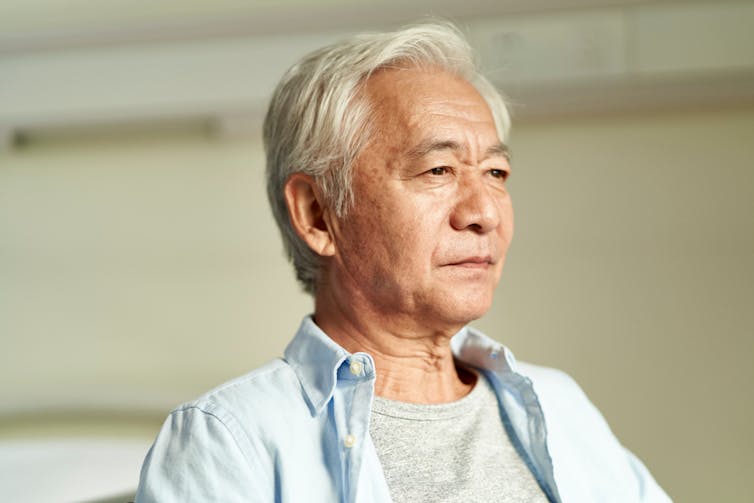The Australian Capital Territory parliament passed its voluntary assisted dying law this week, by 20 to five.
The ACT now joins the six Australian states, all of which have their own voluntary assisted dying laws.
Like the states, the ACT law will begin after an 18-month implementation period. So eligible residents will be able to access voluntary assisted dying from November 3 2025.
This leaves only the Northern Territory without such a law. The NT government has appointed a panel to investigate the issue that is due to report next month.
ACT law broadly reflects ‘Australian model’
The ACT law generally reflects what is now called the “Australian model” of voluntary assisted dying.
Access is permitted only for people who are terminally ill and meet strict eligibility criteria. Eligibility is assessed by two independent, trained health practitioners.
The person seeking voluntary assisted dying must make repeated requests for it. Safeguards include criminal offences for conduct outside the law and a review of cases by a “Voluntary Assisted Dying Oversight Board”.
Health practitioners can conscientiously object to being involved.
Three significant ACT differences
However, there are some important differences between the law in the ACT and state laws. Three of these have been debated since the ACT bill was tabled and have been examined by a parliamentary committee. In the ACT:
- patients do not need to have a specific time frame until they are expected to die. This is different from the 6-12 months required in the state laws. But this change is not as drastic as it seems. Eligibility depends on a number of criteria including that a patient must have a condition “advanced, progressive and expected to cause death”. The “advanced” requirement includes the patient is “approaching the end of their life”
- one of the two health practitioners who assess someone’s eligibility may be a nurse practitioner. Under state laws, both assessing practitioners must be doctors
- patients who receive treatment in institutions (such as hospitals) that object to voluntary assisted dying will have a greater ability to access it than if they were in the states. Queensland, New South Wales and South Australia have legislation on this, but the ACT gives greater rights to people who are in institutions temporarily.

pics five/Shutterstock
What happens next?
Implementation is the next step. There will be 18 months to establish system infrastructure, including the oversight board, mandatory training, guidelines, policy, and to liaise with institutions that will need to know their obligations.
The ACT government had already begun planning. Its response to the parliamentary committee report gives some indication about issues it will consider.
One is about the mandatory training all health practitioners providing voluntary assisted dying must complete. It will include consideration of palliative care, disability awareness, the role of carer relationships in decision-making, and identifying coercion.
There are also recommendations about training for the wider workforce, community education, as well as engaging with Aboriginal and Torres Strait Islander peoples, and culturally and linguistically diverse communities.

imtmphoto/Shutterstock
Lessons for other jurisdictions
The passing of the ACT law will be watched closely in the Northern Territory, which is now the only Australian jurisdiction without voluntary assisted dying laws.
The territories are last to legislate on this issue because, since 1997, they have been prohibited from doing so by a Commonwealth law. That changed in December 2022 with the passing of the Restoring Territory Rights Act. The ACT responded promptly with the bill that has just passed.
The rest of the country may examine the ACT law, particularly its novel features, when their laws are up for review. This generally occurs after three to five years, although some states have regular reviews.
One aspect of the ACT law likely to attract particular interest is allowing nurse practitioners to assess someone’s eligibility for voluntary assisted dying. They are already able to administer the medication in four states and there are calls from at least one oversight board to consider this additional role. This extra role would help address the issue of only having a limited pool of doctors who are trained and willing to provide voluntary assisted dying.
What else do we need to consider?
The most significant issue not addressed in any Australian voluntary assisted dying laws is whether someone with dementia should be eligible.
This will be considered in the ACT review of its law after three years as it is required to examine access to voluntary assisted dying via “advanced care planning”. That review must also consider whether young people with the capacity to decide should be able to access voluntary assisted dying.
However, the extent to which other Australian jurisdictions engage with these and other issues when reviewing voluntary assisted dying laws remains to be seen.
Ben White, Professor of End-of-Life Law and Regulation, Australian Centre for Health Law Research, Queensland University of Technology; Lindy Willmott, Professor of Law, Australian Centre for Health Law Research, Queensland University of Technology, Queensland University of Technology, and Madeleine Archer, PhD candidate, Australian Centre for Health Law Research, Queensland University of Technology
This article is republished from The Conversation under a Creative Commons license. Read the original article.









